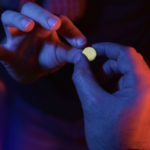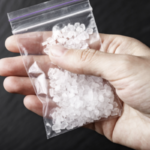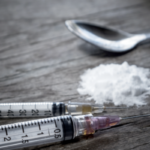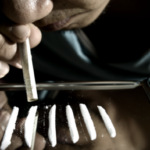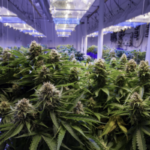Your Guide To New South Wales LSD (‘Acid’) Laws

Lysergic acid diethylamide, which is also known as LSD or ‘acid’, was the ultimate psychedelic of 1960s counterculture, epitomising the credo of “turn on, tune in, drop out”.
However, supplying or even possessing the drug in New South Wales could have the ‘extra effect’ of landing you on the wrong side of the law, getting you a criminal conviction or even locked up in the case of a serious offence.
According to the latest national statistics, 10.4% of Australians have used psychedelics in their lifetime and 1.6% have used in the past 12 months.
Here’s a summary of the nature and effects of LSD, as well as the laws and penalties that apply to offences involving the drug in New South Wales.
What is LSD and what is its effects?
LSD is a psychedelic and hallucinogen, meaning it produces changes in perception, mood and cognitive processes.
The short term effect of LSD include:
- Feelings of euphoria,
- Dilated pupils,
- Perceptual changes, such as visual and auditory hallucinations.
LSD is highly potent with only a small quantity of the drug required for the desired effect. The most common way that LSD is consumed is in the form of drops of LSD solution dried onto gelatin sheets or pieces of blotting paper (‘tabs’) or sugar cubes, which release the drug when swallowed.
LSD tabs sold in Australia are sometimes ‘adulterated’ with other drugs which increase the risk of adverse outcomes. This has led to calls to expand drug checking services so that people understand what they are taking.
The offence of importing or exporting LSD
The importation of LSD (a ‘border controlled drug’) is an offence under sections 307.1 (commercial quantity), 307.2 (marketable quantity) and 307.3 (any quantity) of the Criminal Code Act 1995.
To be found guilty of an importation offence, the prosecution must prove beyond a reasonable doubt that:
- A person imported LSD and
- The person knew they were importing LSD, or was reckless as to whether or not they were importing LSD.
The term ‘import’ includes bringing the substance into Australia, as well as dealing with the drug in connection with its importation. .
If the prosecution wishes to charge a person with importing a marketable or commercial quantity of LSD, they will need to prove the existence of that quantity.
A marketable quantity of LSD is 0.002 grams. A commercial quantity is 2 grams.
The maximum penalties for importation offences are:
- 10 years imprisonment for importing less than a marketable quantity of LSD under section 307.3 of the Code
- 25 years imprisonment for importing more than a marketable quantity of LSD but less than a commercial quantity under section 307.2 of the Code
- Life imprisonment for importing a commercial quantity of LSD or more under section 307.1 of the Code.
The offence of manufacturing LSD
To ‘manufacture’ LSD means to to make up, prepare, produce, process (including by extracting or refining), package or label the psychoactive substance.
Several offences relating to the manufacture and production of prohibited drugs (including LSD) are found under the Drug Misuse and Trafficking Act 1985 NSW. These include:
- Manufacturing or producing or knowingly taking part in the manufacture or production of a prohibited drug under section 24(1) of the Act.
- Taking part in the activities above whilst exposing a child to the manufacturing or production process, or to substances being stored for use in the manufacturing or production process under section 24(1A) of the Act.
- Manufacturing or producing or knowingly taking part in the manufacture or production of a prohibited drug which is more than the commercial quantity under section 24(2) of the Act.
- Taking part in the activities above whilst exposing a child to the manufacturing or production process, or to substances being stored for use in the manufacturing or production process under section 24(2A) of the Act.
A commercial quantity of LSD under the Drug Misuse and Trafficking Act 1985 is 0.5 grams, and a ‘large commercial quantity’ is 2 grams.
The maximum penalties for manufacture and production offences depend on the quantity of LSD manufactured of produced .
For an offence under section 24(1) of the Act, the maximum penalty is 10 years imprisonment and/or a $220,000 fine.
For an offence under section 24(2) of the Act, the maximum penalty is:
- 15 years imprisonment and/or a $385,000 fine if the LSD is more than a commercial quantity but less than a large commercial quantity.
- 20 years imprisonment and/or a $550,000 fine if the LSD is more than a large commercial quantity.
For an offence under section 24(1) of the Act, the maximum penalty is 12 years imprisonment and/or a $264,000 fine.
For the offence under section 24(2A) of the Act, the maximum penalty is:
- 18 years imprisonment and/or a $462,000 fine if the LSD is more than a commercial quantity but less than a large commercial quantity.
- 25 years imprisonment and/or a $660,000 fine if the LSD is more than a large commercial quantity.
Lesser penalties apply if the offence is capable of being tried summarily.
The offence of supplying LSD
Section 25(1) of the Drug Misuse and Trafficking Act 1985 outlines the offence of supply of a prohibited drug, which includes LSD.
Drug supply can include supplying drugs to friends without payment, sending drugs in the post, and being part of a group of people buying drugs with combined funds, selling them and splitting the proceeds. Even if a drug that you supply doesn’t contain an illicit substance, if you have represented it as an illegal drug you can still be charged and convicted of drug supply.
To prove the offence of supply in relation to LSD, the prosecution must prove beyond reasonable doubt that a person supplied LSD to another and knew, or believed at the time, the substance supplied was LSD.
The maximum penalties which apply to supply offences depend on the quantity of LSD supplied. For LSD the following distinctions are made:
- A small quantity is 0.0008 grams.
- An indictable quantity is 0.005 grams.
- A commercial quantity is 0.5 grams.
- A large commercial quantity is 2 grams.
The maximum penalties which apply for an the offence of supply LSD are:
- For less than a small quantity, a $5,500 fine and/or 2 years imprisonment if the matter is heard in the Local Court or a $220,000 fine and/or 15 years imprisonment if the matter is heard in the District Court.
- For more than a small quantity, but less than an indictable quantity, a $11,000 fine and/or 2 years imprisonment if the matter is heard in the Local Court or a $220,000 fine and/or 15 years imprisonment if the matter is heard in the District Court.
- For more than an indictable quantity, but less than a commercial quantity, a $11,000 fine and/or 2 years imprisonment if the matter is heard in the Local Court or a $220,000 fine and/or 15 years imprisonment if the matter is heard in the District Court.
- For more than a commercial quantity, but less than a large commercial quantity, a $385,000 fine and/or 20 years imprisonment.
- For more than a large commercial quantity a $550,000 fine and/or life imprisonment.
It should be noted that under section 29 of the Act, a charge of drug supply can be bought even if there is no evidence of a person actually supplying the drug.
This is known as ‘deemed supply’ and applies if a person is in possession of at least a ‘traffickable’ quantity of a drug.
For LSD, 0.0002g is a classified as a ‘discrete dosage unit’ (DDU), which is the amount of the prohibited drug which is prepared for the purpose of being administered as a single dose.
The traffickable quantity for LSD is 15 DDU or 0.003 grams.
To rebut a charge of deemed supply, the accused must establish (on the balance of probabilities) that the drugs were possessed for reasons other than supply.
The offence of possessing LSD
Possessing a prohibited drug is an offence under section 10 of the Drug Misuse and Trafficking Act 1985 (NSW).
For LSD, this offence will apply if a person is found in possession of any quantity of the drug.
The term ‘possession’ has been defined by the courts as in your ‘exclusive possession, custody or control’.
‘Exclusive possession’ requires the prosecution to exclude any reasonable possibility the drugs were not possessed by you.
The maximum penalty for drug possession is 2 years imprisonment and/or a fine of $2,200.
The offence of driving with LSD in the system
Drug driving is an offence under section 111 of the Road Transport Act 2013 which criminalises a person who has any detectable amount of LSD in their saliva, blood or urine whilst:
- Driving a motor vehicle; or
- Occupying the driving seat of a motor vehicle and attempting to put the motor vehicle in motion; or
- Supervising a learner driver.
The maximum penalty for this offence is:
- For a first offence, an on-the-spot driver licence suspension for 3 months and a penalty notice which is $602 at the time of writing, or an ‘automatic’ 6 month driver licence disqualification which can be reduced to 3 months and a fine of up to $2,200 if the matter is dealt with by a court, or
- For a subsequent offence, a $3,300 fine and an automatic licence disqualification for 12 months, which the court can reduce down to as low as 3 months or increase as it sees fit.
It is important to be aware that there will be no driver licence disqualification, no criminal conviction and no fine if the magistrate exercises his or her discretion to make a ‘non-conviction order‘, such as a section 10(1)(a) dismissal or a conditional release order without conviction.
There are no roadside saliva tests for LSD in NSW.
The detection window for tests for blood tests is up to 48 hours after the consumption of LSD and up to 4 days after the consumption of LSD for urine tests.
Detection windows may be created if a person uses multiple drugs (whether illicit or medicinal) or have medical issues which impact drug metabolism.
Going to court for an LSD-related offence?
If you are going to court for an offence relating to LSD, call Sydney Criminal Lawyers 24/7 on (02) 9261 8881 to arrange a free first conference with an experienced drug defence lawyer who will advise you of your options and the best way forward, and fight for the optimal outcome.
Receive all of our articles weekly
Related Articles
RELATED LEGISLATION
- Section 307.2 Criminal Code Act 1995 | Importing or Exporting a Marketable Quantity of Border Controlled Drugs
- Section 307.12 Criminal Code Act 1995 | Importing or Exporting Marketable Quantity of Precursors
- Section 307.3 Criminal Code Act 1995 | Importing or Exporting Border Controlled Drugs
- Section 25 Drug Misuse and Trafficking Act 1985 | Drug Supply
- Section 10 Drug Misuse and Trafficking Act 1985 | Drug Possession
- Section 111 Road Transport Act 2013 | Drug Driving - Driving with Presence of Certain Drugs (Other than Alcohol) in Oral Fluid, Blood or Urine
- Section 307.1 Criminal Code Act 1995 | Importing or Exporting A Commercial Quantity of Border Controlled Drugs

